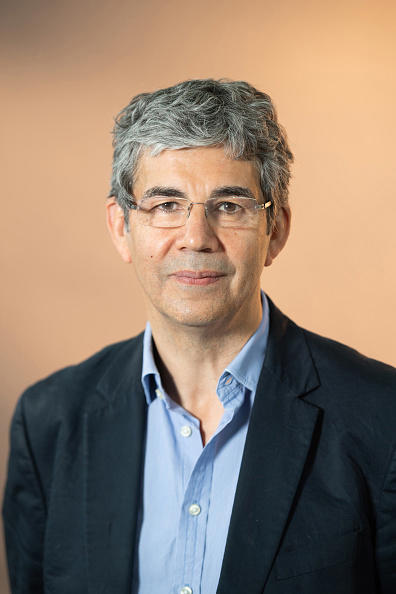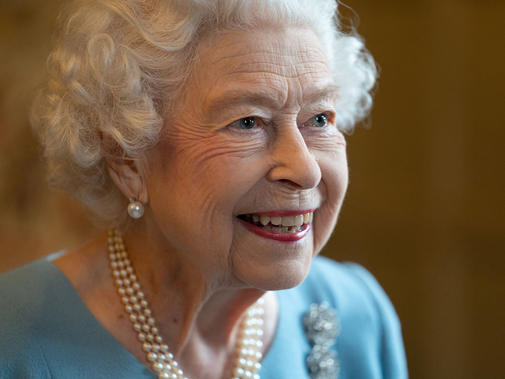I was not in a good place. My diminishing ability to cope was rather spectacularly exposed quite soon after my return, when I was invited to a private lunch with the Queen at Buckingham Palace.
I am not sure how this came about; I knew the broadcast of my Eddie Mair interview had touched a lot of people, so perhaps someone in the Royal household had also tuned in.
In any event, one day not long after I got back I put on my one and only suit and waved goodbye to Elly as I passed through the gates of the Palace. The contrast between those gilded walls and the ravaged streets of Aleppo began doing weird things to my head.
I walked along the red carpet into one of the reception rooms and stood awkwardly with the other guests. I felt a fraud, guilty – I should not be here enjoying this splendour and warm hospitality while my friends in Aleppo are suffering.
I looked at the seating plan and found that I was sitting on the Queen’s left, which I knew was an honour. But I was perilously close to a panic attack.
 NOTT: ‘My bottom lip started to go’
NOTT: ‘My bottom lip started to go’
I stood dumbly with the other guests making small talk with Prince Philip. God knows what he must have thought.
Finally, we were taken through to the dining room and one of the courtiers showed me to my seat next to the Queen.
Etiquette dictates that the Queen will speak to the person on her right for half the lunch and will then turn to the person on her left for the second half.
I realise now that I should have been speaking first to the person on my left, but I cannot recall doing so and whoever it was must have thought me extremely rude. I could feel myself staring into space. The dessert arrived and the Queen turned to me.
At first I couldn’t hear what she was saying, as my hearing had been damaged by a bomb blast near the hospital in Aleppo. I tried to speak, but nothing would come out of my mouth. It wasn’t that I didn’t want to speak to her; I couldn’t.
I simply did not know what to say. She asked me where I had come from. I suppose she was expecting me to say, ‘From Hammersmith,’ or something like that, but I told her I had recently returned from Aleppo. ‘Oh,’ she said. ‘And what was that like?’ What was it like? What could I say? My mind filled instantly with images of toxic dust, of crushed school desks, of bloodied and limbless children.
And of Alan Henning and those other Westerners whose lives had ended in the most appalling fashion. I don’t know why it happened then, or why it should have been the Queen who breached the dam. Perhaps it was because she is the mother of the nation, and I had lost my own mother.
My bottom lip started to go and all I wanted to do was burst into tears, but I held myself together as best I could. I hoped she wouldn’t ask me another question about Aleppo. I knew if she did, I would completely lose control. She looked at me quizzically and touched my hand.
She then had a quiet word with one of the courtiers, who pointed to a silver box in front of her. I watched as she opened the box, which was full of biscuits. ‘These are for the dogs,’ she said, breaking one of the biscuits in two and giving me half.
We fed the biscuits to the corgis under the table, and for the rest of the lunch she took the lead and chatted about the dogs, how many she had, what their names were, how old they were.
All the while we were stroking and petting them, and my anxiety and distress drained away.
‘There,’ the Queen said.
‘That’s so much better than talking isn’t it?’
This extract is reprinted with the kind permission of Pan Macmillan from David Nott’s book, War Doctor: Surgery on the Front Line
Images: Getty

